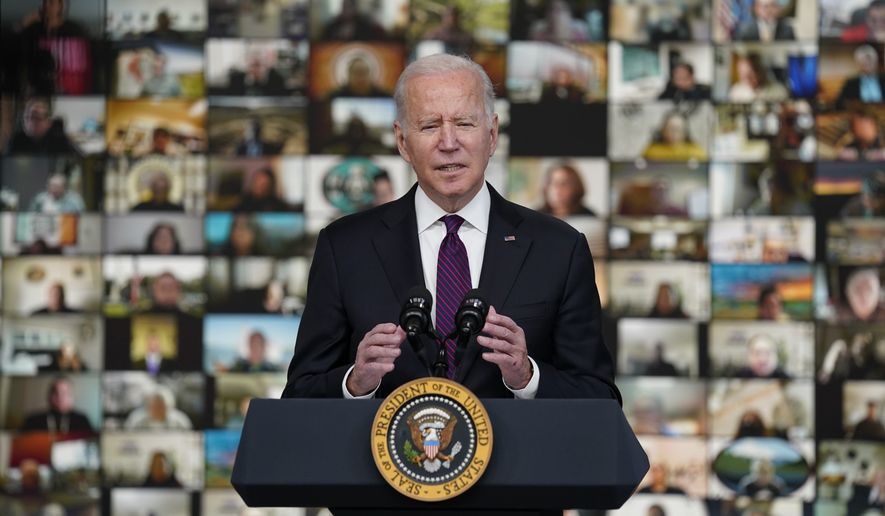No one is quite sure how many American Indians are killed or go missing every year — and the Biden administration wants to know why.
Attorney General Merrick Garland announced Monday the Justice Department will set up a committee after President Biden called for federal agencies to get involved in an executive order signed during the White House Summit on Tribal Affairs.
Mr. Garland said the committee will establish guidance, technical assistance and “Tribal Community Response Plans” on how law enforcement can assist when a member of a tribal community is reported missing or murdered.
“We acknowledge that our country has historically failed to meet the crisis of missing or murdered Indigenous people with the urgency and the resources it demands,” Mr. Garland said in announcing the effort.
National Crime Information Center statistics show there were 9,571 reports of missing American Indians in 2020. Advocates, however, say the actual number is much higher due to lack of data collection and mistrust of law enforcement.
Last month, Rep. Greg Stanton lambasted the attorney general for not doing enough to address the crisis since he was confirmed in March.
“It does not appear that you have used your platform to help make this a top priority, nor has the Department of Justice really moved the needle on this issue since your confirmation,” Mr. Stanton, an Arizona Democrat, said during a House Judiciary Committee hearing on Oct. 21.
Nearly a week later, the Government Accountability Office published a report finding the Justice Department has failed to implement certain statutory requirements for the federal response to missing and murdered American Indian women.
According to the Oct. 28 report, the total number of missing or murdered American Indian women in the U.S. is unknown because federal databases lack comprehensive data on the cases.
In 2016, the Urban Indian Health Institute reported 5,712 cases of missing or murdered women and girls. The Justice Department, however, only reported 116 in its federal database.
The accountability office said the department has not fulfilled its obligations under Savanna’s Act, passed in 2019, which requires the DOJ to consult with tribal communities on how to improve tribal data relevance and access to databases.
The department, it said, has “taken some steps” to improve data analysis, including adding more detailed statistics for missing persons cases in 2020 and breaking the cases down by demographics. But it has not created a plan to continue the improvement efforts past the end of this month.
The Justice Department did not immediately respond to a request for comment from The Washington Times on Monday.
Mr. Biden’s executive order also called for Mr. Garland and Deb Haaland, secretary of the Department of the Interior, to appoint members to the Joint Commission on Reducing Violence Against Indians as required by the Not Invisible Act of 2019.
The appointment of the members is months past the deadline of Feb. 7, 2021.
The joint commission will be tasked with making recommendations to the Justice and Interior departments on how to increase intergovernmental collaboration to address and investigate cases involving missing people.
• Emily Zantow can be reached at ezantow@washingtontimes.com.




Please read our comment policy before commenting.